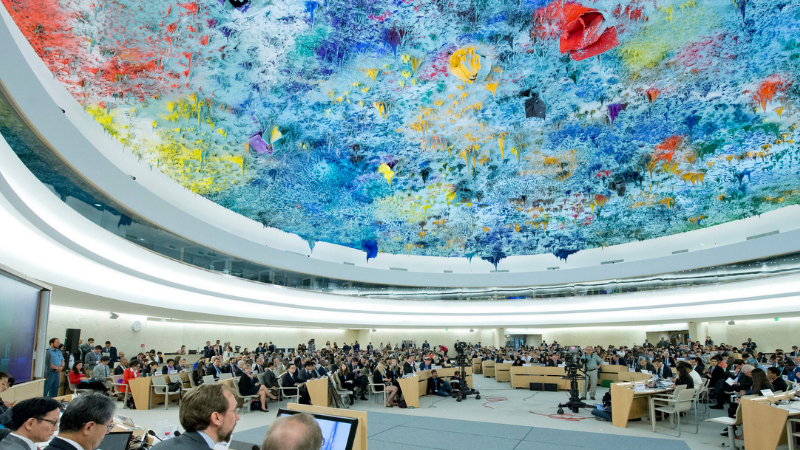The Maltese government has come under significant criticism for a number of human rights issues including women’s rights, rule of law, freedom of the media and the protection of journalists.
During the country’s Report of the Working Group on the Universal Periodic Review (UPR) at the United Nations Human Rights Council 40th Session (UN HRC40), Malta was called out on a number of concerns and was given suggestions for reforms and improvements that it should take.
The delegation, headed by Equality Minister Helena Dalli, was repeatedly criticised for Malta’s weaknesses in areas pertaining to freedom of expression, media freedom, media independence, the safety and protection of journalists, and lack of investigation into who commissioned the murder of journalist Daphne Caruana Galizia.
#Malta: In an unusually hostile move for a #UN & #EU member state, @MaltaGov specifically refuses to accept the following recommendations from #Brazil, #Germany & #France at the adoption of its #UPR38 human rights review this week: https://t.co/HF9RnNjyqf
— Sarah Clarke (@Sarah_M_Clarke) March 13, 2019
Specifically, the government of Malta did not accept the UPR recommendation to “guarantee that an independent and effective public inquiry into the killing of the journalist Daphne Caruana Galizia is carried out”. Brazil, Slovenia, and Switzerland questioned why a “transparent and effective” public inquiry into the murder was not underway and called on the Maltese authorities to do so.
The USA, Denmark, Finland, Sweden, Belgium, Austria, Spain,Australia, Czech Republic, Slovenia, Iceland, Greece, France, Germany, Switzerland and Mexico were among those calling for enhanced freedom of speech and freedom for journalists to continue their work without fear of intimidation or other repercussions.
Dalli said improvements to journalist and media protection through reforms to libel laws had been made, again despite the fact that Maltese journalists and media portals are regularly threatened with international SLAPP suits, as well as vexatious libel suits, to silence critical reporting on corruption.
Read: Russian banker threatens The Shift News with SLAPP lawsuit
Her husband, Patrick Dalli, yesterday issued a warning on social media to a journalist who won two appeals against libel suits he filed against her in 2014, saying “it’s not over“.
She was also keen to talk about the introduction of the whistleblower act despite it failing to protect the whistleblowers that have tried to use it.
As well as criticising the lack of investigation into the journalist’s assassination, Slovenia also noted that Caruana Galizia’s death had highlighted the risk of investigations into corruption, organised crime and money laundering.
Dalli said Malta was fighting against corruption and money laundering through its 1994 “robust regulatory framework” and its legal framework for the banking sector that was created in 1968. She nodded towards the increase of financial allocations to the FIAU that is supposed to mitigate the risks associated with money laundering and the financing of terrorism.
Finance Minister Edward Scicluna recently said that Malta’s alleged money laundering issues were “false allegations” designed to sully the reputation of the country, Despite this, the Finance Ministry signed off on over €4 million for consultancy firm Oliver Wyman for the “provision of support” towards combating money laundering.
Read: Another €4 million spent on ‘false allegations’ in 5 months
In January, the government also announced that the budget of the anti-money laundering agency FIAU had increased from €1.6 million to over €10 million.
The Maltese delegation also made reference to constitutional reforms made to the justice sector in 2016, stating that they strengthened the independence of the judiciary, despite some countries in attendance disagreeing.
One of the few States to praise the rule of law and impartiality of the judiciary was Albania, a country that currently has no functioning constitutional court, no opposition, and that is seeing a large percentage of its judges, magistrates and prosecutors removed over links to money laundering, and organised crime.
A statement was also made today by the Press Emblem Campaign that urged all States to create, both in law and in practice, a “safe environment for journalists” as well as ensuring accountability.
The organisation also repeated the need for Members of the Human Rights Council to step up the fight against impunity and the harassment of journalists, noting that 13 journalists had been killed since the beginning of the year.












